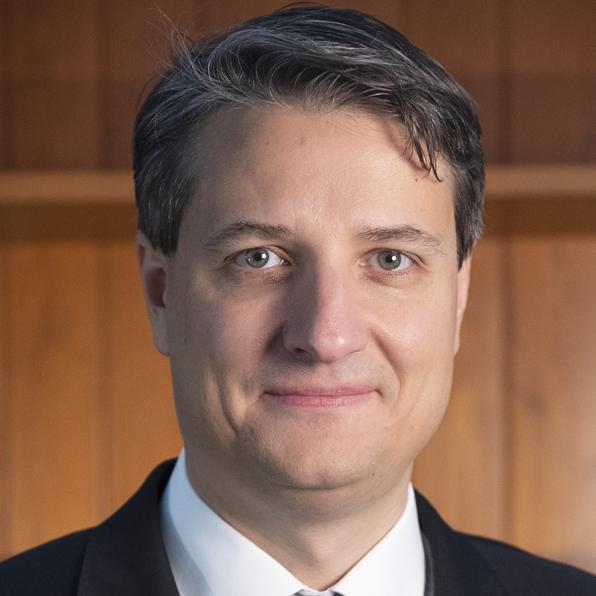Keynote Speakers
ISD 2025 is proud to feature distinguished Keynote Speakers who are leading experts in information systems development. Their insights will provide valuable perspectives on the latest trends, challenges, and innovations shaping the field.
Title: How Artificial Intelligence Changes Medical Diagnosis, Treatment, and Education
Speaker: Mirjana Ivanović
Affiliation: University of Novi Sad, Serbia
Slides from the keynote talk: link

About the speaker: Mirjana Ivanović has been a Full Professor at the Faculty of Sciences, University of Novi Sad, Serbia, since 2002, and a corresponding member of the Serbian Academy of Sciences and Arts since 2024. She is a member of the National Scientific Committee for Electronics, Telecommunication, and Informatics within the Ministry of Science, Technological Development, and Innovations of the Republic of Serbia. Additionally, she is a member of the Board of Directors at the Institute for Artificial Intelligence Research and Development of the Republic of Serbia. She has authored or co-authored 17 textbooks, 30 edited volumes of international conference proceedings, 33 special issues in esteemed journals, four international monographs, and over 540 research articles. Her work spans topics such as multi-agent systems, intelligent techniques (including case-based reasoning, data mining, and machine learning), technology-enhanced learning, and software engineering education. Most of her publications are published in high-impact international journals and conference proceedings. Mirjana Ivanović has contributed as a program committee member for over 550 international conferences and has served as a general chair or program committee chair for numerous events. She has also been an invited speaker at various international conferences and a visiting lecturer in Australia, Thailand, and China. As both a leader and researcher, she has played a significant role in numerous international projects.
Abstract: In modern dynamic, constantly developing society more and more people suffer from noncommunicable diseases, such as cancer, heart disease, neurodegenerative disease, diabetes, and so on. They are the leading cause of death worldwide and represent an emerging global health threat. Moreover, the population in a lot of countries is getting older and needs additional and special medical and health care. Accordingly, world renowned health stakeholders have recognized the importance of development of wide range of systems/architectures/services that can support diagnoses and treatment decisions for patients, help them in everyday activities and improve their quality of life. For the development of smart and intelligent medical architectures and decision support systems collection of huge amounts of patient’s complex big data is necessary. Such data should be properly curated, aggregated, analyzed and results achieved by AI-based processing of such data are used by the doctors to recommend adequate treatment and actions in order to improve patient’s health status. Contemporary Healthcare and Medical systems are predominantly distributed. Together with intensive use of Machine Learning approaches (ML), Federated Learning (FL) plays an essential role in such systems. Each medical institution might have a lot of patient data, but it can be not enough to train their own local prediction models. Accordingly, the combination of FL and prediction of future patients’ status but also patients’ treatment for achieving satisfactory quality of life parameters is good solutions to break down the barriers of analysis throughout different hospitals. On the other hand, modern AI-based approaches are also employed in the development of systems and environments that can have significant impact on medical and healthcare education, like agents, extended reality, metaverse, and so on. In this talk all the above-mentioned aspects will be considered and some personal experiences in developing such systems will be presented.
Title: Designing Three Rs of Digital Business Ecosystems: Roles, Responsibilities, and Resilience
Speaker: Jelena Zdravković
Affiliation: Stockholm University, Sweden
Slides from the keynote talk: link

About the speaker: Jelena Zdravković is a Professor and Head of Computer and Systems Sciences (DSV) department at Stockholm University (SU). She has a Ph.D. in Computer and Systems Sciences at The Royal Institute of Technology (KTH), as well as the MBA degree in E-commerce. Jelena’s research activities are centered to the requirements engineering discipline, with current focus to digital ecosystems and digital twins. She has participated in several national and international projects on related to system interoperability, capability and service modelling, and model-driven engineering. Jelena has published over 100 refereed papers in international conferences and scientific journals. She served in the Editorial Board of Springer’s RE and BISE Journals, as well as she is a guest editor and reviewer for a number of other international journals including Springer’s Software and Systems Modeling, Elsevier’s Data & Knowledge Engineering and Information Systems, and IEEE Computing. Jelena has organized a number of international conferences and workshops in the IS Engineering discipline, and she serves in the program committees of many of them.
Abstract: Digital Business Ecosystem implies several distinctive features including the heterogeneity of involved actors, their interdependence in the exchange of resources, the dynamic nature of their relationships, and the need for self-organization. To successfully design and develop such ecosystems, it is essential to clearly define the business scope, delineate the roles and responsibilities of each participating company, organization and individual, map out their interactions and dependencies, and leverage a range of underlying technologies and diverse data. Furthermore, this process must include an assessment of the ecosystem’s resilience, gauging its ability to achieve its objectives in the face of challenges. This involves identifying and measuring resilience indicators to ensure the ecosystem’s capacity to adapt and thrive under changing conditions.
Title: Lost in Generation: The Hidden Cost of AI and the Power of Conceptual Modeling
Speaker: Hans-Georg Fill
Affiliation: University of Fribourg, Switzerland
Slides from the keynote talk: link

About the speaker: Hans-Georg Fill is Full Professor for Business Informatics at the University of Fribourg, Switzerland. He has received his PhD and habilitation from the University of Vienna, Austria. He has more than 15 years of experience in conceptual modeling and enterprise modeling both in academia and industrial research projects. He is co-department editor for Enterprise Modeling and Enterprise Engineering of the BISE journal and supporting editor-in-chief of the gold open-access journal Enterprise Modeling and Information Systems Architectures – International Journal of Conceptual Modeling. He is speaker of the SIG Modeling of Enterprise Information Systems (MobIS) and the deputy speaker of the Cross-sectional Technical Committee on Modeling (QFAM) of the German Informatics Society (GI).
Abstract: Generative artificial intelligence has recently emerged as a global phenomenon. It has the capacity to generate texts, images, software, video, and audio content through statements in natural language without the need for technical expertise. However, these advancements come with costs, including increased energy consumption, potential copyright issues, or costs related to potentially false information. Additionally, there is a concern that humans are becoming overwhelmed by the sheer volume of information they are now generating individually, while at the same time experiencing a loss of skills and competencies that are assumingly being absorbed by AI. The field of conceptual modeling has a long tradition in eliciting and structuring knowledge in many domains for supporting human communication, for processing information, and reasoning about it. It is therefore well-suited for dealing with some of the challenges of generative AI. This includes support for AI input, better understanding of AI output, as well as preventing the deskilling of human actors. In this talk we will therefore discuss the past, present, and future of conceptual modeling in times of generative artificial intelligence and its contributions to information systems development.